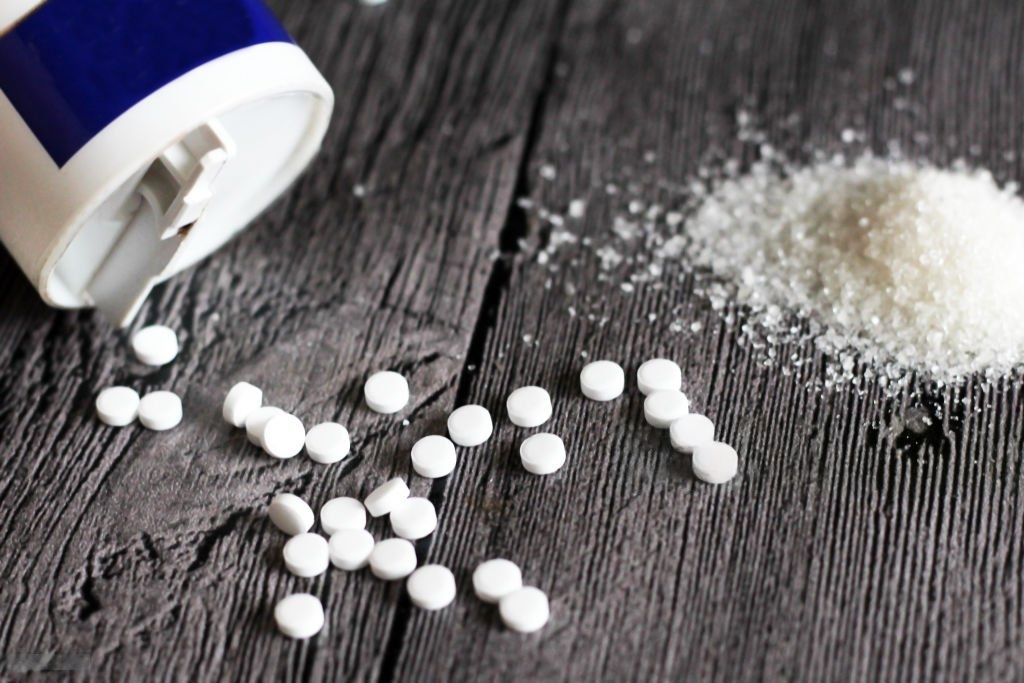Examining the Impact of Artificial Sweeteners on Well-being
It's crucial to use artificial sweeteners in moderation and take into account one's individual health circumstances.

Artificial sweeteners have become ubiquitous in our modern diet. With a promise of sweetness without the calories, they seem like an attractive alternative to sugar. However, concerns about their impact on our health and well-being persist. This blog aims to explore the effects of artificial sweeteners on various aspects of our health.
The Rising Popularity of Artificial Sweeteners
Artificial sweeteners, also known as non-nutritive sweeteners or sugar substitutes, are synthetic substances used to mimic the taste of sugar. Common examples include aspartame, saccharin, sucralose, and steviol glycosides (Stevia).
How Artificial Sweeteners Work
Artificial sweeteners are significantly sweeter than sugar, so only small amounts are needed to achieve the desired sweetness. They pass through the body without being metabolized, hence contributing no or very few calories.
Examining the Impact
1. Weight Management
Artificial sweeteners are often used as a weight management strategy since they provide sweetness without the associated calories.
Artificial sweeteners can be calorie-free or have very low calories. By replacing sugar with artificial sweeteners, individuals can reduce their overall calorie intake, which is crucial for weight management.
2. Blood Sugar Levels
Artificial sweeteners do not cause a spike in blood sugar levels, making them a popular choice for people with diabetes.
Artificial sweeteners are not carbohydrates and are not metabolized by the body like sugar, resulting in no increase in blood glucose levels. This makes them safe for consumption by individuals with diabetes.
3. Replacing Sugar in Coffee with a Sugar Substitute
When you opt for a sugar substitute in your coffee instead of regular sugar, you cut down on the calories while still enjoying the sweetness.
Regular sugar contains about 4 calories per gram, whereas artificial sweeteners provide negligible to no calories. By substituting sugar with a sweetener, you reduce your caloric intake, which is a fundamental aspect of weight management.
4. Choosing Diet Soda over Regular Soda
Many individuals prefer diet sodas that use artificial sweeteners over regular sodas to minimize calorie consumption.
Regular sodas are high in sugar and calories, contributing to weight gain and other health issues. Diet sodas, on the other hand, use artificial sweeteners, significantly reducing calorie intake and aiding weight management.
Summary
The impact of artificial sweeteners on well-being is a topic of ongoing research and discussion. They can play a role in weight management and blood sugar control, making them attractive options for many individuals, especially those with specific health conditions. However, it's essential to consume them in moderation and consider individual health circumstances.
Jayti Shah is a Clinical Nutritionist with a master's degree in Clinical Nutrition and Dietetics. She is a member of the Indian Dietetic Association (IDA). Over the last 9 years, she has helped 400 clients in their clinical and weight loss journeys. She works with SocialBoat as a nutrition consultant.
At SocialBoat, we offer custom diet plans and guided workouts to help you achieve your goals in a 360-degree approach. Our gamified experience ensures that you don’t find workouts boring and we reward you for being consistent with your efforts.

REFERENCES
- Fitch, C., & Keim, K. S. (2012). Position of the Academy of Nutrition and Dietetics: Use of Nutritive and Nonnutritive Sweeteners. Journal of the Academy of Nutrition and Dietetics, 112(5), 739-758.
- Malik, V. S., Pan, A., Willett, W. C., & Hu, F. B. (2013). Sugar-sweetened beverages and weight gain in children and adults: a systematic review and meta-analysis. The American Journal of Clinical Nutrition, 98(4), 1084-1102.
- Pepino, M. Y. (2015). Metabolic effects of non-nutritive sweeteners. Physiology & Behavior, 152(Part B), 450-455.
